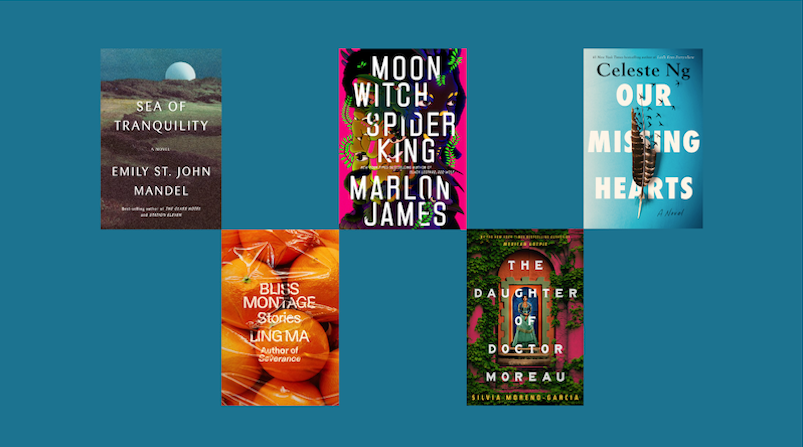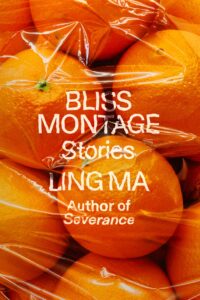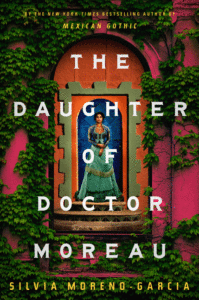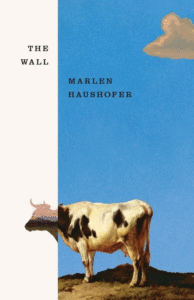
We’ve come to the end of another bountiful literary year, and for all of us review rabbits here at Book Marks, that can mean only one thing: basic math, and lots of it.
Yes, using reviews drawn from more than 150 publications, over the next two weeks we’ll be calculating and revealing the most critically-acclaimed books of 2022, in the categories of (deep breath): Fiction; Nonfiction; Memoir and Biography; Sci-Fi, Fantasy, and Horror; Short Story Collections; Essay Collections; Poetry; Mystery and Crime; Graphic Literature; and Literature in Translation.
Today’s installment: Sci-Fi, Fantasy, and Horror.
*
1. Sea of Tranquility by Emily St. John Mandel
(Knopf)
28 Rave • 9 Positive • 3 Mixed • 1 Pan
Read an interview with Emily St. John Mandel here
“In Sea of Tranquility, Mandel offers one of her finest novels and one of her most satisfying forays into the arena of speculative fiction yet, but it is her ability to convincingly inhabit the ordinary, and her ability to project a sustaining acknowledgment of beauty, that sets the novel apart. As in Ishiguro, this is not born of some cheap, made-for-television, faux-emotional gimmick or mechanism, but of empathy and hard-won understanding, beautifully built into language … It is that aspect of Sea of Tranquility, Mandel’s finely rendered, characteristically understated descriptions of the old-growth forests her characters walk through, the domed moon colonies some of them call home, the robot-tended fields they gaze over or the whooshing airship liftoff sound they hear even in their dreams, that will, for this reader at least, linger longest.”
–Laird Hunt (The New York Times Book Review)
2. Our Missing Hearts by Celeste Ng
(Penguin)
21 Rave • 5 Positive • 4 Mixed
“Stunning … One of Ng’s most poignant tricks in this novel is to bury its central tragedy…in the middle of the action. This raises the narrative from the specific story of a confused boy and his defeated father to a reflection on the universal bond between parents and children … Our Missing Hearts will land differently for individual readers. One element we shouldn’t miss is Ng’s bold reversal of the biblical story of the Tower of Babel. It is the drive for conformity, the suppression of our glorious cacophony, that will doom us. And it is the expression of individual souls that will save us.”
–Bethanne Patrick (The Lost Angeles Times)

3. Bliss Montage by Ling Ma
(Farrar, Straus and Giroux)
21 Rave • 5 Positive • 2 Mixed
“The strangeness of living in a body is exposed, the absurdity of carrying race and gender on one’s face, all against the backdrop of an America in ruin … Ma’s meticulously-crafted mood and characterization … Ma’s gift for endings is evident … Ma masterfully captures her characters’ double consciousness, always seeing themselves through the white gaze, in stunning and bold new ways … Even the weaker stories in the book…are redeemed by Ma’s restrained prose style, dry humor, and clever gut-punch endings. But all this technical prowess doesn’t mean the collection lacks a heart. First- and second-generation Americans who might have been invisible for most of their lives are seen and held lovingly in Ma’s fiction.”
–Bruna Dantas Lobato (Astra)
4. Moon Witch, Spider King by Marlon James
(Riverhead)
15 Rave • 7 Positive • 1 Mixed • 1 Pan
“Marlon James’s Moon Witch, Spider King, the second book in his Dark Star trilogy, is both a continuation of the narrative that began with Black Leopard, Red Wolf in 2019 and an outstanding retelling of that story that expands on what the first book started. While shifting points of view, James…enriches the existing story, and the result is a book that simultaneously celebrates African mythology while creating its own … an impressive amalgamation of folklore, magic, and mythology that weaves together several narratives, but the element that makes it memorable is James’s prose. As lush as the forests he describes, the prose in this novel is simple, rhythmic, and strangely elegant. This is writing with a kind of cadence that turns every line into a poem, every story a tale told around a fire, every event an occurrence deserving of attention … Retelling the same story from a different perspective is not a gimmick here; it is a successful literary device that leads to a gripping narrative … This is a novel about the power of grief where anger is a driving force, and in that, despite all its fantastical elements, it is a deeply human story.”
–Gabino Iglesias (The Boston Globe)
=5. Lesser Known Monsters of the 21st Century by Kim Fu
(Tin House)
13 Rave • 4 Positive
Read a story from Lesser Known Monsters of the 21st Century here
“..the horrors are more intimate, smaller, and less global in scale. This is not a collection filled with fantastic beasts, although a sea monster does make an appearance, but instead illuminates the monstrous nature of humanity … Technology, rather than magic, catalyzes these changes. That is not to say there are not some traces of unexplained fantasy, such as a girl who sprouts wings from her ankles, but mostly, Fu’s monsters manifest from modernity … The success of Kim Fu’s stories is the element of the unexpected. There are surprises lurking in these narratives, whether it is a quick final plot twist or unexpected peculiarity … Although Fu seems more concerned with alienation stemming from individual relationships, there is criticism of conventional consumer capitalism … The characters in Fu’s collection are eccentric and unexpected in their choices, and many of their stories feature unforeseen endings that strike the right tone for the dark era we live in … Fu opens a window looking onto the sad possibilities of our own failures.”
–Ian MacAllen (The Chicago Review of Books)

=5. The Daughter of Doctor Moreau by Silvia Moreno-Garcia
(Del Rey)
13 Rave • 4 Positive
Read an essay by Silvia Moreno-Garcia here
“The imagination of Silvia Moreno-Garcia is a thing of wonder, restless and romantic, fearless in the face of genre, embracing the polarities of storytelling—the sleek and the bizarre, wild passions and deep hatreds—with cool equanimity … the novel immerses readers in the rich world of 19th-century Mexico, exploring colonialism and resistance in a compulsively readable story of a woman’s coming-of-age … The visceral horror of what Carlota has endured, combined with Moreno-Garcia’s pacing and drama, makes for a mesmerizing horror novel.”
–Danielle Trussoni (The New York Times)
7. Our Wives Under the Sea by Julia Armfield
(Flatiron)
12 Rave • 4 Positive • 1 Mixed
Read an essay by Julia Armfield here
“I have not stopped dreaming of Our Wives Under the Seasince I finished it … Julie Armfield’s debut novel is sharp, atmospheric, dryly funny, sad, distinctive. If it doesn’t appear on numerous prize lists, I’ll eat my hat … There are ecological undertones – one thinks of rising tides, though the climate crisis is not explicitly mentioned … Indeed, though the writing is relentlessly exacting, Our Wives Under the Sea tends towards the unknowable, which might also be synonymous with death or the uncanny. There is an almost spiritual endlessness to its quest. Like all good novels, it goes deep and then deeper again.”
–Niamh Donnelly (The Irish Times)
8. How High We Go in the Dark by Sequoia Nagamatsu
(William Morrow)
10 Rave • 6 Positive • 1 Mixed • 1 Pan
Read an interview with Sequoia Nagamatsu here
“The reader might best approach the book like a melancholy Black Mirror season … This is a lovely though bleak book. Humanity has long turned to humor in our darkest moments, but levity feels absent even in a chapter narrated by a stand-up comedian. That said, the somber tone unifies the disparate characters and story lines … a welcome addition to a growing trend of what we might call the ‘speculative epic’: genre-bending novels that use a wide aperture to tackle large issues like climate change while jumping between characters, timelines and even narrative modes … Nagamatsu squarely hits both the ‘literary’ and ‘science fiction’ targets, offering psychological insights in lyrical prose while seriously exploring speculative conceits … a book of sorrow for the destruction we’re bringing on ourselves. Yet the novel reminds us there’s still hope in human connections, despite our sadness.”
–Lincoln Michel (The New York Times Book Review)

9. The Wall by Marlen Haushofer
(New Directions)
10 Rave • 1 Positive
“The return to the now solidly established horror, in realism’s steady pacing, is always more visceral than the initial encounter … a dystopian novel that gradually becomes a utopian one, as our narrator makes a new community. Haushofer’s inhabiting of animality is remarkably tender and selfless … Haushofer is a rather terrifying writer, brutal both in her unillusioned clarity and in the calm with which she tracks the consequences of her fictional premises … one of those books which effortlessly wring meaning upon meaning from their opening narrative conceit … pulses with a meaningful politics that is always in danger of being unravelled by the novel’s own movement toward a resigned, fatalistic, strictly apolitical naturism.”
–James Wood (The New Yorker)
10. A Tiny Upward Shove by Melissa Chadburn
(Farrar, Staus and Giroux)
9 Rave • 3 Positive
Listen to an interview with Melissa Chadburn here
“It is a wild and ambitious conceit, but it succeeds because of the exuberance of the aswang’s voice and the richness of the details … the women are vivid: their hair and jewelry and clothes, their preoccupations and mannerisms … The horrors Alex in particular endures are lurid and hard to read. But the book is rescued by a joy evident in the writing, something ablaze at its core. It burns.”
–Erin Somers (The New York Times Book Review)
*
Our System:
RAVE = 5 points • POSITIVE = 3 points • MIXED = 1 point • PAN = -5 points

